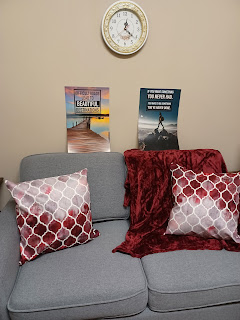Who Counsels the Counsellor?
During my Masters degree studies, professors stressed over and over again how important it was for every counsellor to HAVE a counsellor. I took that seriously.
Halfway through my program, I ran into an emotional snag and had to go on medication to weather it, and I sought the help of a counsellor who was well-versed in processing traumatic experiences. With her help, I was able to heal from many of my childhood traumas and integrate those experiences and my reactions to them into my everyday life and practice. It took several months, but I saw progress in my personal life and emotions. I kept seeing this counsellor as a touchstone of sorts, a way to keep myself accountable for the gains I had made in therapy. When my counsellor made a decision to explore other challenges, I knew I had to find someone else to talk to, because the experience of being heard was not something I wanted to let lapse.
I found such a person through an online counselling service, and I'm still seeing this woman every four to six weeks. She's terrific!
What is it like for counsellors who are on the OTHER side of the desk? In other words, what do counsellors talk about when THEY are clients? The answer is simple: they talk about the same thing that their clients do: anxieties, difficult emotions like anger and grief, other current life events, work-life balance, dreams, goals, and self-care. Always self-care. 
My office - where I hope people feel safe.
I talk about my dogs and cats, the stresses of potty-training a puppy, the grief of losing a loved one, the pressures of balancing home and office life, the demands of COVID-19 protection, the discoveries I make in my own personal growth, and how I look after the person I am today and keep her healthy (physically, mentally and spiritually). I talk about the frustrations of being a Masters-level counsellor and the necessity of having to add HST to my services once my income reaches a certain level (while other professions like physiotherapy and massage therapy are not required to do so). I talk about my efforts to give back to the psychological community by my work in the PEI Counselling Association. I share what makes me happy, sad, angry, and afraid. And all the while, I keep to myself the things that my clients share with me.
The experience of counselling - even one session - is something I wish that more people could experience. It's a powerful thing to feel understood, to feel safe, to feel like someone hears my heart. My gratitude toward my own counsellor helps me to better understand the experience of my own clients and their need - at times - to express that gratitude. It helps me respond to that gratitude by giving them the gift of saying "thank you" - and of hearing me say in return, "you are most welcome." I mean it, and they know I mean it. Plus it gives me the opportunity to thank THEM in return; every client gives me the gift of being able to help. I get to remind myself why I got into this profession ... to "help someone," as my daughter used to say. It's very rewarding.

Comments
Post a Comment